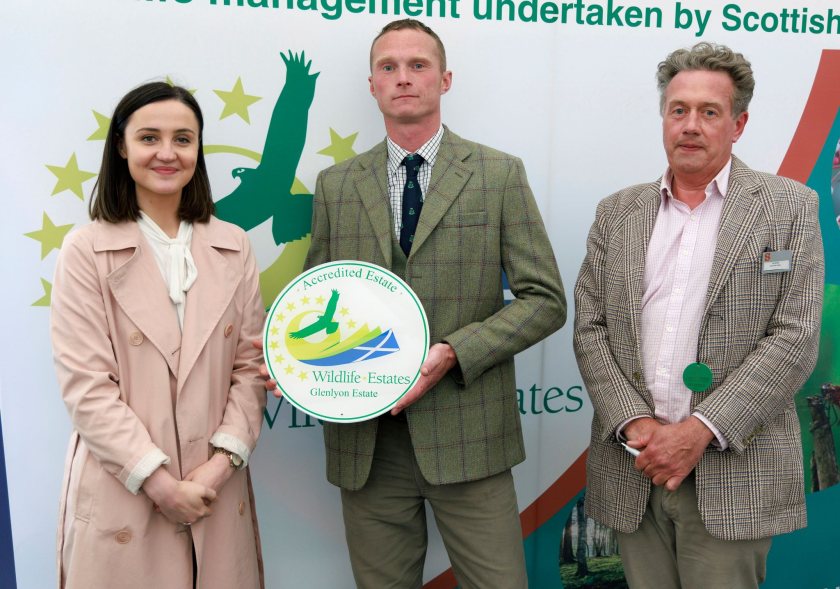
Seven Scottish farms and estates – accounting for nearly 170,000 acres - have been awarded prestigious international accreditation to recognise their work in wildlife management and conservation.
The award of Wildlife Estates Scotland (WES) accreditation was made at the GWCT Scottish Game Fair last weekend, with Scotland's farming minister Màiri McAllan presenting the accolades.
One new accreditation was made with a further six properties receiving reaccreditation, a process that takes place every five years.
The new accreditation was awarded to Glenlyon Estate, Perthshire, while the six reaccreditations were presented to: Balmoral Estate, Deeside; Candacraig Estate, West Aberdeenshire; Dougarie Estate, Isle of Arran; Glendoe Estate, nr Fort Augustus; Sorn Estate, East Ayrshire; Tulchan Estate, Moray.
Glenlyon Estate is a mixed estate with forestry, agriculture, tourism, sporting and renewable energy interests.
Over the last five, years they have been busy restoring and enhancing wetland areas to provide greater connectivity and have been waging war against the persistent rhododendron ponticum.
With one of the more ambitious Habitat Managment Plans the assessors have seen, the next phase of the estate’s work aims to focus on improving habitat areas and corridors for species including black grouse, curlew and pollinators.
WES is a national version of the international Wildlife Estates (WE) initiative, with an objective to protect and improve the environment.
Just over a decade since WES was established, Scotland currently sits second in the league table of Wildlife Estates accredited land on 1.25 million acres, with only Spain ahead on approximately 1.6 million acres.
Scottish government's farming minister Màiri McAllan said: “These new accreditations are well-earned and well deserved.
"They demonstrate commitment to delivering environmental, economic and social benefits to rural communities including increasing biodiversity, providing healthy food products such as venison and bringing Scotland’s people closer to our beautiful natural environment."
Dee Ward, chair of Wildlife Estates Scotland, added: “These farms and estates are undertaking exceptionally important work, benefiting our environment and biodiversity.
“They have all demonstrated a common approach to best practice and provide a broad range of information, including species data and conservation projects.
"[This] helps to provide significant insight on what is working well and where our collective conservation efforts need to be targeted.”
